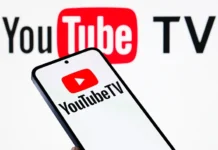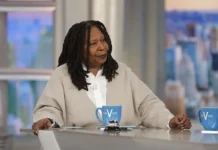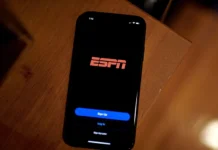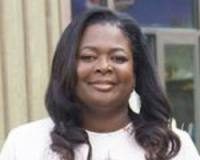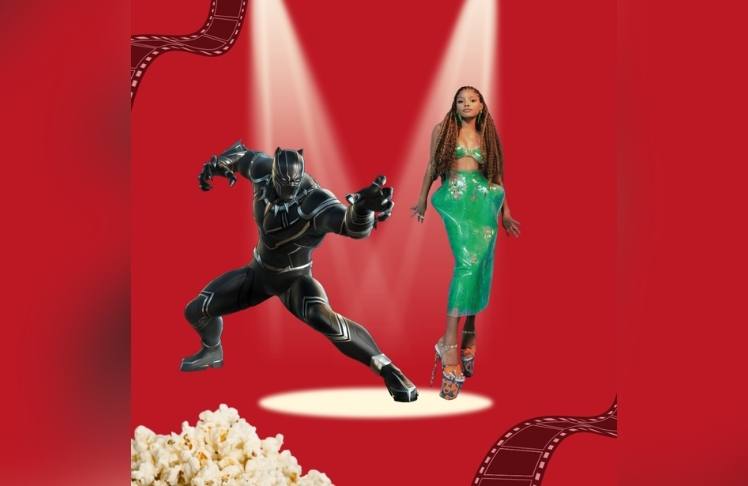
Several “culturally relevant” films will soon be released, and frankly, from the studio that you’re probably thinking of: Disney.
I am a Disney fan — movies, parks, unreasonable expectations for life — all of it. But I’ve had an issue with the Mouse for a while, and it has little to do with their magic branding and more to do with their culture/race branding. Or, to be more specific, what they think is race/culture branding.
Let me take a step back and review my own work. When “Black Panther” came out in 2018, I wrote a piece titled “Black Panther proves we have A LOT of work to do.” In that piece, I wrote, “REPRESENTATION DOES NOT MATTER, SELF REPRESENTATION MATTERS.”
And now, as “Black Panther: Wakanda Forever,” the sequel to “Black Panther” is in its marketing phase and “The Little Mermaid” — excuse me, THE BLACK Little Mermaid — is gearing up for its marketing run, Black people’s reactions are not so much confusing now as they are depressing.
I’ll set this stage again: Hollywood has figured out that Black people will support anything with Black people as the lead. Literally, anything.
They’ve exalted figures from our community — actors they think or believe have some image control and that the mainstream likes — to gain Black audiences. Works every time.
My point with what I wrote in 2018 about “Black Panther” was to try and showcase how Black people are so under or misrepresented that we will spend money just to see us on a screen, no matter what the quality or subject. Yes, BP is a great movie, and to us comic fans who are Black, it was a much-needed addition to the ever-growing comic blockbuster era we are in currently.
However, I wondered — and other Black comic/movie fans were wondering the same: Why are all you Black people so hyped? I mean, no one knew the name T’Challa before 2018. No one cared about the character’s importance or history. No one had heard of Wakanda, and NO ONE had a problem with how they shifted the character to fit the franchise timeline.
I won’t get into the super nerd stuff, but all of a sudden, Black people were acting like the legend of His John was finally getting its due on screen. It was annoying, to be honest — like, where is all this love for actual Black stuff, LOL?
But we (the OG Nerds) smiled, watched the daishiki market explode, and dealt with the crowds of fair-weather fans in theaters. It was… fine. But then came the next wave.
Allow me to montage a little bit because it’s been four years, but this is what’s happened:
We’ve had Chadwick Boseman’s death; Disney Bought Marvel and decided to double down on nostalgia by rebooting cartoon classics as live-action movies; and, of course, we had 2020 and the social justice movements. Bam! Now it’s 2022, and not only is “Black Panther: Wakanda Forever” coming out November 11, but also “The Little Mermaid” live-action reboot starring Halle Bailey is set to be released May 26, 2023. Again, as the swarms fawn over Disney’s newest Black food pellet, I’m back writing the same op-ed about the same company and the same Black People.
I’m just gonna say it, so it’s said: No Black person should be excited about “The Little Mermaid,” especially not because she’s now Black.
To be clear, feel excited about your favorite Disney movie being remade. Feel good that Ariel will be great due to Ms. Bailey’s talents. The production will be good. I mean, c’mon, it’s Disney. But if it’s because Ariel, the German culture folklore-based, red-headed ’80s teenager, is now Black — you, my friend, just want to be a part of their world.
I saw a slew of posts with Black women showing their daughters watching the teaser trailer and then turning to the camera like they just saw Prince perform “Purple Rain,” exhaling in amazement, saying softly in disbelief, “She’s Black….”
Why is that what your daughter is amazed by? Not even the Black girl imagery but that the Little Mermaid is Black. I was actually more shocked than I was by the first “Black Panther” fanfare.
And then Disney hit me again: The “Black Panther: Wakanda Forever” teaser drop. Good Lord, this company knows how to play Black people’s emotions.
Not only was there a huge controversy in the fandom about replacing Chadwick Boseman (still the right choice, in my opinion), but as soon as it came up and the extracurricular negroes got on Twitter, we, the true fans, knew this was now going to be a PR campaign and not a sequel.
We were proven right. I remember chatting with a guy in a comic forum, and we were both laughing (online) about how the trailer opened with the Bob Marley cover — for the culture… then everyone is Yoruba white… for the culture… CHADWICK BOSEMAN MURAL, letting us know that they 100% are milking Black trauma for dollars… for the culture… and just for sh*ts and gigs we are bringing in Namor, and he’s now Mexican — Mayan… FOR THE CULTURE!!!.
It was the best impenetrable marketing armor I’ve ever seen. And it is all to solidify a Black audience and encourage a “woke” fan base to come to the defense of the film, and of course, keep critics on the side of inclusion and diversity rhetoric. It’s genius.
In the trailer, they even made sure to focus on every single Black woman in the movie — like, say something now, I dare YOU! Absolutely brilliant.
Why does this matter? Isn’t it good that this is happening? Why would anyone, especially a Black person, think of this as a “bad” thing”?
So here’s the rub: As a Black comic fan, a fan of Black comics, a movie fiend, a media company owner, and, as a fanboy, it’s all fake. That’s why it matters.
There is no support for Black people from corporate media studios. There are no allies in the entertainment industry. There is no value to our people beyond image — and all of Hollywood seems to know this and acts accordingly, but we act like it’s real. That’s why it’s important.
If you want Black mermaids, start with Mami Wata and go from there. Ask yourself, why haven’t the Black people in Hollywood pooled resources to produce these films/tv shows? Why are you looking for Disney to make characters Black, so you feel good about giving them money? Because the true sin here is that you believe it’s for the culture when really, you’re simply diving deeper into Eurocentric cultural standards and white supremacist attitudes.
The Little Mermaid is a culturally-based German fairy tale. In actuality, it’s a cautionary tale, like all fairy tales from Europe, designed to help guide the moral character and compass of younger generations. So then Disney — the man, the misogynist, the racist — comes along, and whitewashes even the whitest of tales, changing them to what we know as the Disney version.
Enter the second golden age of Disney and the release of “The Little Mermaid.” We now have another pretty young princess who yearns for her prince. Amazing. Now she’s Black. Awesome. Now our little Black girls can see a Black mermaid who lusts after a white guy — and will literally take her voice and give it away just to be near him… why oh, why is this being celebrated as a Black achievement?
With “Black Panther,” it was a little more egregious. This is not only a white-created fictional story, it has all the opportunity to pull from REAL cultures to create authenticity, buuuuut what if we just left it the same? So they did, and it did what it did.
But Black people swear Shango and Ogun came together to write the script, and Martin Luther King, Jr directed it, and it was produced by Malcolm X, and released for the sole purpose of celebrating Black people’s heritage. And to be clear, what I’m saying is that Disney as a company knows this and uses it to increase its bottom-line revenue. And most importantly, make money for its ownership board. That’s it.
All this pro-Blackness, all this so-called representation, all this marketing that Black people will support — myself included — will go to lining the pockets of the same folks who lobby against police reform, prison reform, and social justice… they have us as their base, and their avatars wear vibranium suits.
It’s hard for me — I am now considering taking my son to a movie just because it’s something I know will be “cool,” and most of my peers will be doing the same.
I just sit and sometimes wonder when Will Smith and Denzel Washington will collaborate to produce a film about Icon starring Yahya Abdul-Mateen as Icon and Yara Shahidi as Rocket, written and directed by Ryan Coogler, distributed by Code Black or something — why is that a dream? Why is that not the norm? Why are we not advocating for investment in Black production houses and theaters and streaming instead of acting in this insane way of begging white people for their attention and validation? I wish these were rhetorical questions, but I need some answers.
There is no such thing as Black Hollywood, and at this point, that’s on us.
Oh yeah, here are some links to Black comics and some Black mermaids — for the culture.
- Black Mermaids: A Goodreads list you should check out.
- Afrocomiccon: A website and event that “entertains, educates, and unites a diverse, global audience around comics, art media, technology, and culture.”
- Black Sands: “Black Sands only publishes titles that empower the community and youth.”
- An essential Comic Book Resources list: 15 Black Comics Writers Whose Work You Need to Read
- Another great list from Comics Bookcase: Great Comics By Black Comics Creators


